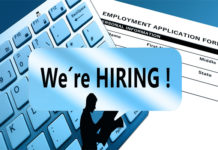The talent shortage is not just real, it’s reaching crisis levels, a new survey has revealed.
In fact, almost half (48%) of employers say they are struggling to find skilled talent, and a staggering 74% report delays of more than a year filling senior roles, according to EY’s 2025 Mobility Reimagined Survey.
Against a backdrop of cost pressures, geopolitical uncertainty, and workforce expectations shifting post-pandemic, employers are being forced to rethink how they attract, develop and retain talent. And increasingly, they’re finding answers in employee mobility and Generative AI. In fact, EY’s latest global survey reveals that mobility and GenAI adoption are critical levers to closing the talent gap.
“Mobility has never been more essential,” stated Maureen Flood, EY Global People Mobility Solution Leader. “In a market where employees expect personalised career journeys and flexibility, companies can’t afford to treat mobility as an afterthought.”
EMPLOYEE MOBILITY
The survey, which captured insights from over 1,000 mobility professionals across 22 countries, highlights that companies with mature, integrated mobility strategies are significantly outperforming peers.
Organisations with evolved mobility programmes are more than twice as likely to achieve 10% revenue growth, thanks to more agile talent deployment and stronger employee engagement. Furthermore, 85% of respondents believe mobility assignments are transformative, enhancing retention and career development.
AI ADOPTION
In a striking shift, the number of mobility professionals using Generative AI tools routinely rose from 22% to 35% year-over-year, reflecting a broader readiness to automate and enhance global talent functions. Overall, 70% believe GenAI will positively impact productivity, flexibility, and risk mitigation.
GenAI is already streamlining time-consuming tasks like documentation, policy comparison, and data synthesis – freeing up HR professionals to act as strategic talent advisors. As explains:
“GenAI is only as powerful as the people trained to use it,” explained Gerard Osei-Bonsu, EY Global People Advisory Services Tax Leader. “When paired with skilled professionals, it enables a smarter, more agile workforce.”
CLOSING THE TALENT GAP
With 96% of respondents focused on cost reduction, the pressure on mobility teams to deliver value is intense. Leading organisations are doubling down on automation and outsourcing, achieving faster hires and improved employee outcomes.
Evolved mobility functions are significantly more likely to track KPIs such as promotion rates post-assignment, time-to-fill roles, and revenue impact – positioning them as essential partners to the business.
If companies hope to close the widening talent gap, mobility programmes and GenAI adoption will need to move from the sidelines to centre stage. The future belongs to organisations that can move talent swiftly, support employee aspirations globally, and equip their teams with the tools to thrive.
Check out the full survey here.








































